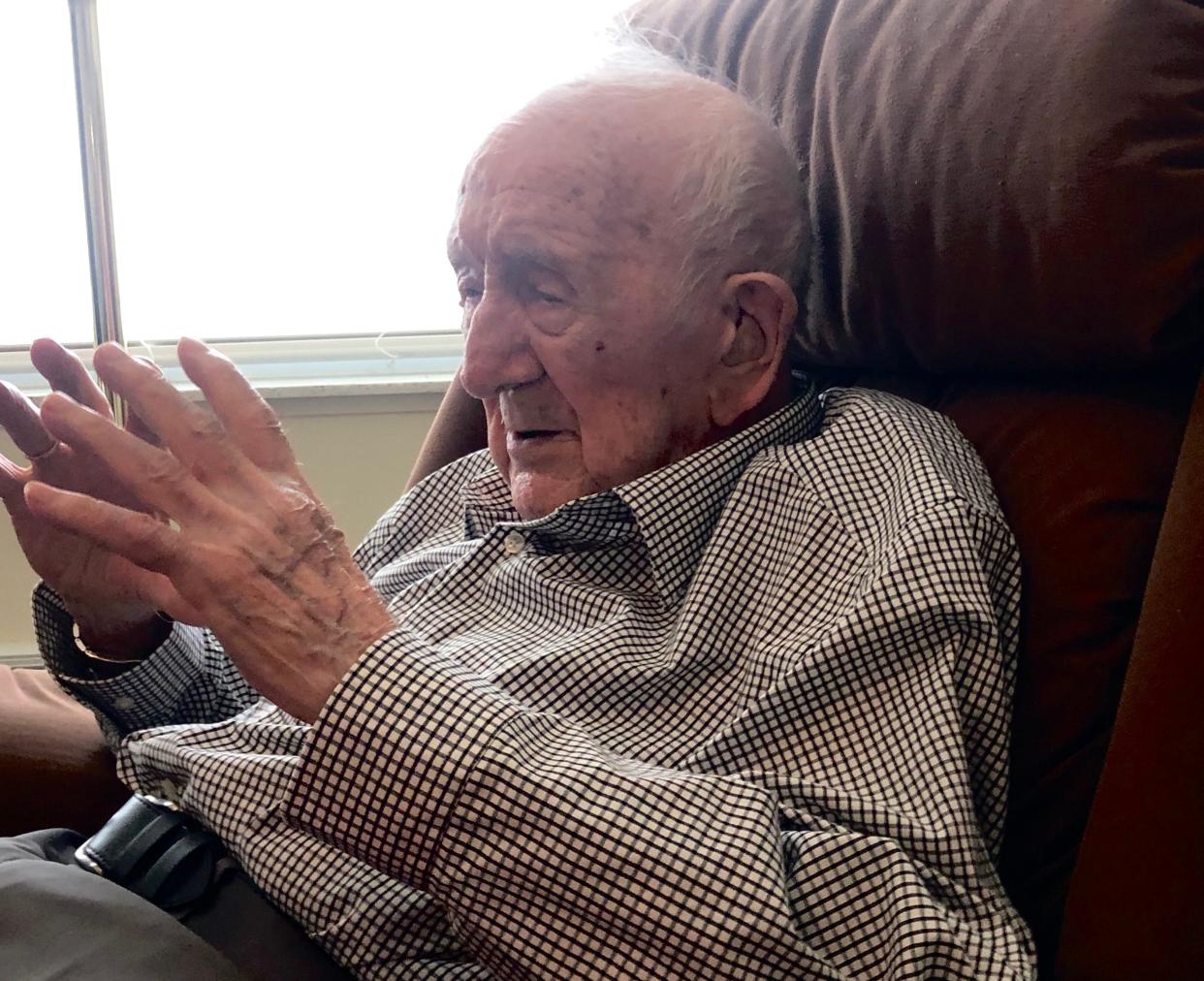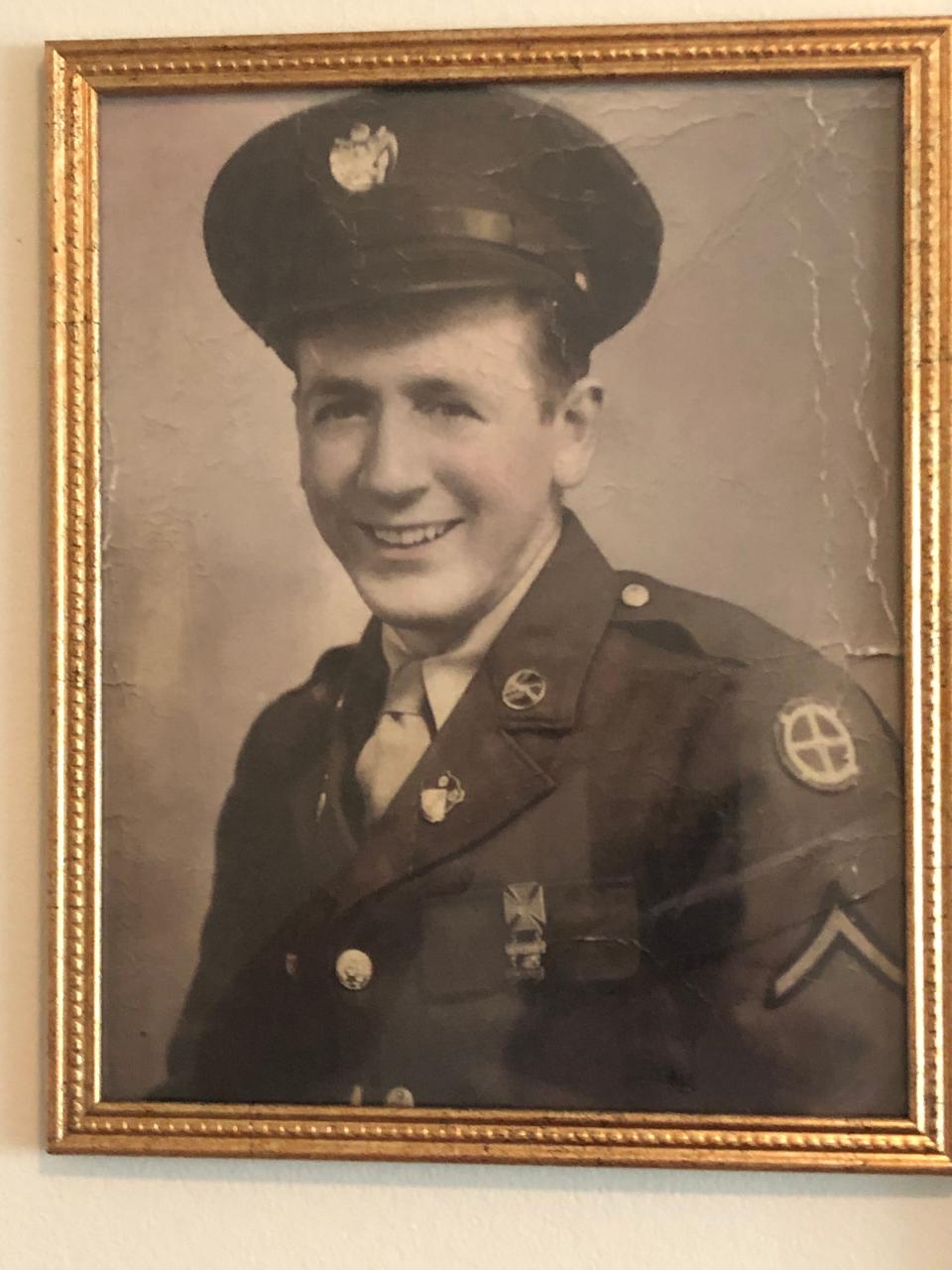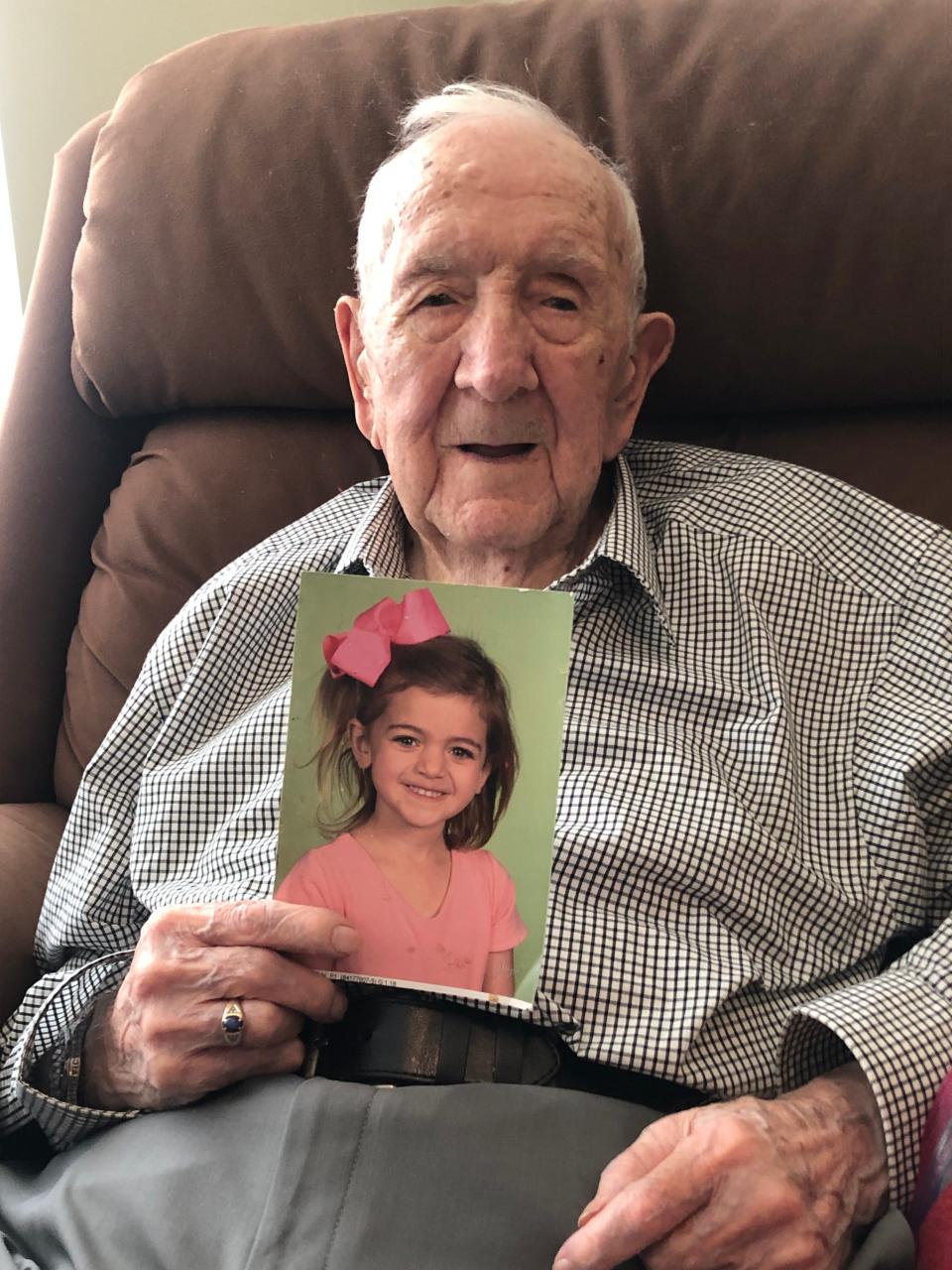From Studebaker to World War II to a Cubs World Series win, Bob Early filled his 100 years

Bob Early said he lived long enough to see the Chicago Cubs win the World Series. As many of us know, that victory was in 2016. “It was a 108 years since the last one. I don’t think I’ll see another one,” he laughed.
Maybe. Maybe not. Don’t count Bob out.
Bob celebrated his 100th birthday on June 10 with friends, family, banners and a bunch of cupcakes. He said it was a big surprise to him. “I’ve been mighty lucky. The Lord has been with me. I feel good, and I’ve made my mark. I’ve seen all kinds of changes. Some have been good things, like landing on the moon."
Namely News: Priest builds replica of Notre Dame's Golden Dome-topped main building out of Legos
He has a sense of humor about his long life, likes to go to the casino for fun, and attributes his good health and many years to being a vegetarian. That started when he was 7 or so. Just never liked meat of any kind, he said.
Bob’s journey included a big family, Army service during World War II and being a prisoner of war in Germany. His wartime story was recorded for the Smithsonian Institution. Once he was home, he went back to Studebaker. There were several moves with his family and several jobs to support a family. Spent time working in California doing deliveries and setting up mail systems for companies. Then he and his wife, June, moved back to Indiana.
His son, Stephen, lives in Kingman, Ariz. He says his father was dedicated to hard work and supporting his family. “He had a limited education, but he supported his family. He has always been the worker bee. I was in varsity sports and he didn’t make many games. He was at work by 7 a.m. and home late. By the time I got to high school, I had a job. I followed in his footsteps. I needed to do it right. I look up to him.”
Bob came from a family of 10 children. Born in Brazil, Ind., the family moved here when he was 7. Stayed in school until the 10th grade, when he left to help support the family. “Making $10 a week was good," Bob said, "and it helped the family.”
By the way, his real first name is Elza. “I borrowed Bob,” he said.
He had several jobs before he started at Studebaker, and then he was drafted in 1942. He was part of the 134th Infantry. He detailed all the training sites, camps, cities and special training before being loaded on a ship and heading to England for a brief stay.

Bob was trained to shoot a bazooka. It is a two-man operation with a gunner and the soldier who loaded the weapon. “I worked with a guy from Texas. We called him Pancho.”
The friendship lasted after the war. There was a visit to Texas, but they lost touch. “I’m not sure what happened to a lot of my friends from back then,” he said.
Bob was part of a wave to come ashore after D-Day. He remembers seeing white crosses and remnants of the battle. “There was still a lot of fighting. We would have two or three days on the line and then be pulled back for a couple of days. You would talk with a guy, become friends and then get separated.”
His outfit got separated near the Moselle River and they were captured. “They took our weapons, and the children gathered around and took our watches and anything else we had. We marched to Nancy, France.”
They were kept in a school yard and later loaded on railroad cars and taken to Moosberg, Germany, he said. Scared and hungry they did the best they could. The prisoners did voluntary work in the town to clean out the woods or clear damage. It was a way to get food.
City trailblazer: Music was saving grace for first Black in South Bend Symphony
Then the Allied forces were getting close and American tanks were approaching. After nine months as a prisoner, he was freed. “I lost 50 pounds.” The former prisoners were told to get back any way they could. “I hitched a ride on a truck and ended up in England.” He spent the rest of his time as a military policeman near Indianapolis.
“My biggest regret has been not knowing what happened to those friends in the war,” he said.
Life went on for Bob and his growing family. He and June met and were married in 1948. They had two children — Amy and Stephen. They moved to California, where Bob worked for Hughes Aircraft and McKesson Pharmaceuticals.

A few more moves and they were back in South Bend. He then worked at St. Joseph Hospital in environmental services. June died in 2008 and Amy died in 2016. He has two remaining sisters, Nora and Patsy from that big family.
In addition to Stephen, Bob has a grandson, Jeffery, and one great granddaughter, Ellen. They live in Reno. Ellen’s photos decorate his refrigerator and several spots around the apartment. “I held her when she was born. That was pretty special. I’m hoping I'll see her again.”
That sounds like a plan.

Contact Kathy at kfborlik@yahoo.com.
This article originally appeared on South Bend Tribune: Cubs fan, centenarian, World War II POW: Bob Early of South Bend

